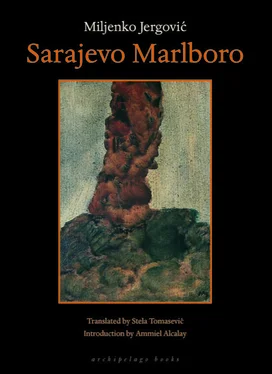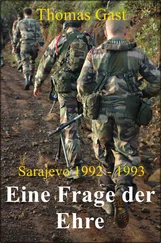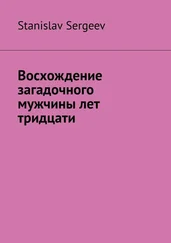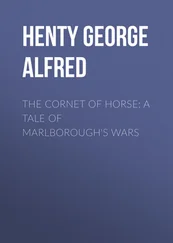The local criminals wearing combat uniform plundered The Bell, while the neighbors smashed up the bar and used the wood to stoke their stoves during the first days of winter. The bar turned into an empty cellar devoid of illusion. One day Sem took a handful of foreign journalists around the place; by then it was a cold and empty hole. They looked at one another, probably not believing that it had ever been a jazz club. After all, what could these unfortunate, hungry and poor Bosnians possibly know about jazz, about the roof gardens of Manhattan where a lonely person drowns his sorrows in a dark liquid. It’s just sad that Billie Holiday died a long time ago.
I hate to think about where I’ve ended up. It’s a city like many others, full of colors and signs and directions, setting the pace and purpose of everything like a metronome. The city lies about a hundred miles or so from the end of the world; its inhabitants make plans for the future. Cobblers repair shoes for the winter. Tailors make suits that will last a lifetime or from one occasion to the next. Novelists begin work on family sagas in three volumes that will take a dozen years to write. Life pulsates to a regular beat, with minor betrayals and the odd respite, like juggling your check book and the credit cards. People survive in closed circuits. They flicker like neon, and stay alive by means of ritual, from the cradle to the grave; it’s a long way from apocalypse. In fact, they live the sort of life I used to live before the war dissolved everything and upset my routine. Before a kind of fear made it necessary for me to give up other considerations and to escape. Everything I had was left behind, and represents, at least in my imagination, the price of fear. And my home, my books, fridge, video, furniture, the feeling that I have to save up for the future. . These days I spend money more freely than ever, because I don’t have enough of a stake in this new city to buy anything of value. Just a microwave. Since I’ve got money I eat in expensive restaurants. I leave the change. I don’t even bother to count the smaller notes. I feel like a monk, without any possessions, but with a wealth of choices. I could be somewhere very different in just a moment. Or I could be nowhere, in a world of pure dreams, faith or fatalism. It really doesn’t matter.
People often give me letters that are addressed to strangers because they imagine that I still have a link to Sarajevo. They bring me the envelopes and ask if I could pass them on at the first opportunity. The city I left is no longer visited by postmen or carrier pigeons. The only links are secret and unreliable — and I’m supposed to be one of those links. A little while ago I was given a letter for a man who was already dead. He was killed while he stood in his doorway having a cigarette. At least, that’s what I heard.
I didn’t want to tell the letter-bearer the truth, because I doubt that he would have known what to do with such a piece of information. I put the letter in a drawer, hoping it would just vanish. Each time I opened the drawer, for whatever reason, I happened to see the letter. As soon as the dead man had become a distant memory, and the idea of him was no longer accompanied by sadness, I decided to open the letter. It was written by a person who was a complete stranger to me, with an unfamiliar name and surname, and as he had nothing to do with my life, I read his letter as if it was a work of literature, cut off from reality like the dead man, another distant memory.
My dear friend,
I left without saying goodbye. It was the only way to go at the time. I am writing this so that we don’t create a void between us and in case you think that something occurred suddenly to ruin our friendship. I never mentioned my leaving because it would have been rude. You might have thought that I valued my own life more than you did yours, or that I felt I was a more worthy human specimen, or at least one deserving to find salvation in General Morillon’s ark. I left because I was afraid and because I had the choice. This is the naked and banal truth that I have to tell you from the start. I didn’t come to say goodbye because I didn’t have the courage.
Fifteen years ago I came to Sarajevo, where I was noticeably different because of the color of my skin. You already know that. I was one of the many students from non-aligned countries who regarded Bosnia as the gateway to the white world that invented the rules of the game and thus bulked large in our dreams of Eldorado. This was not London, Paris or New York; it was less bright than our dreams, but in essence it was a sort of Disneyland, where mice, dogs, cats, ducks and horses all took part in the same story. The black man was greeted by the whites without hatred or love. It was only when Sasa and I got drunk and became argumentative that he would curse my “black mother.” Yes — my mother was black, although he seldom displayed much interest in her. In other cities, for example, nobody ever cursed my black mother, but nor did they share a bottle of beer with me. The same curse, with variations, was also directed at other people who were not black. At Serbs, Croats, short or fat or tall people, hunchbacks, those with a limp, Albanians, the devout — it was a particular joy to curse another person’s god — pastry chefs, bakers, soldiers. . They were harsh curses that always referred to the obvious, to things that were immediately apparent as a defect, but which really shouldn’t have been regarded as a defect so much as a trait. The effects of the curse didn’t last long, and anybody who spent any length of time in Sarajevo quickly grew accustomed to the impoliteness — but not until they grasped that each curse meant, “I can see you’re like this or that — but I don’t really mind.” Nevertheless your otherness was always used against you. I didn’t really enjoy the Sarajevo curses, but they probably explain why I spent my whole life — you see, I really can’t tell if it’s over yet — in that city.
It was clear to me from the start that the hatred embodied by the mortars and shells was not a product of Sarajevo’s curses, or indeed of anything else I had known in Bosnia. The hatred I encountered was too personal to have produced such a collective evil. Bosnians could hate for a long time, persistently and with gusto, but there was no order in it. Somebody else had to provide the mortars, shells, tanks and planes in order to organize the hatred. I still feel that the sniper pulls the trigger in order to kill somebody who is like himself, somebody he has cursed very often perhaps, but who would otherwise have solved the dispute in a bar-room brawl. With fists or a knife.
The wartime killings in Bosnia seemed to me technological. They were undertaken with a discipline that was far removed from anything I had encountered. In this country, the rocks are fastened to the ground by ice, and dogs are let off their leads, but until today, nobody was ever attacked by the dogs in a pack. Just by one. For the whole pack to come after you, there has to be something else at stake, something impersonal — a system of government, perhaps, or a circle of hell — to give the crimes an ideological motive and to justify hundreds of empty stories, including the ones about fastened rocks and unfastened dogs.
At first we believed that we were separate from the evil in lots of ways. I had a head start in that respect, because of the color of my skin. I reckoned if they’d had a choice back then, all the Sarajevans would have become black overnight. Neighbors looked after one another, ate together, gave away their last handful of rice. They believed that they were soon to be redeemed, that the world and God would see what they were like and release them from the suffering.
Читать дальше










